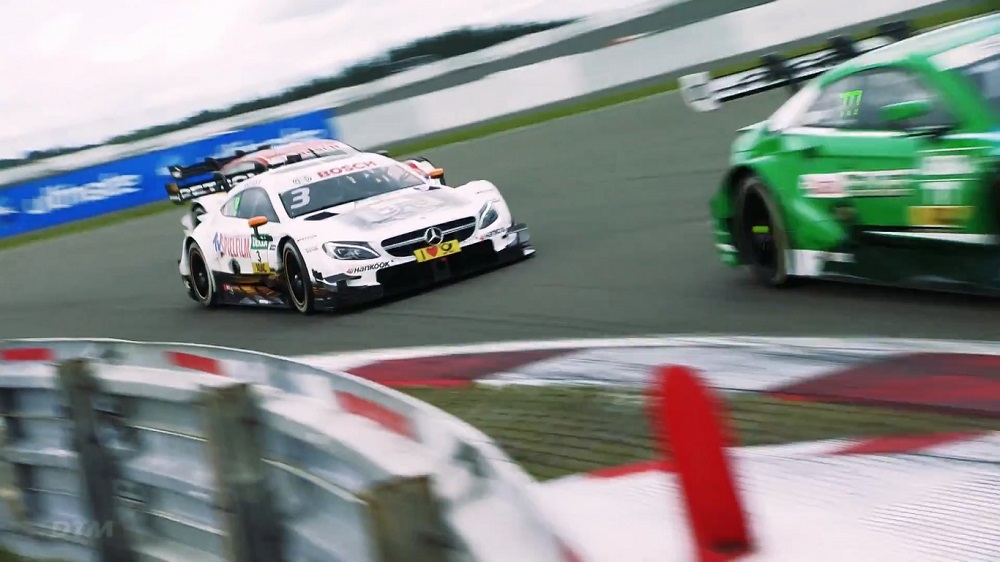Mercedes-Benz To End DTM Program After 2018
With Formula E on the horizon, MB packs up the longest-running manufacturer involvement in German touring-car history.
With the checkered flag at Hockenheimring on October 14, Mercedes-Benz looks toward 2018 as its final year of racing in DTM. The brand’s three-decade run in the German touring-car series hopefully doesn’t end with a whimper, But their podium-less final weekend of 2017 scored them just enough points to place second in the manufacturer’s championship.

Mercedes announced they were leaving the DTM championship earlier this year to focus on a Formula E program for that series’ 2018-2019 season. In doing so, they leave behind an unmatched legacy in the run of the German touring series. Their participation predated Audi’s and extended long after BMW left the series in the mid-1990s.
The 190E Years, 1986-1992
Mercedes first took to the earlier iteration of DTM in the mid-1980s when the series ran FIA Group A regulations. With their ferocious new Cosworth-powered 190E, Mercedes set out to end BMW’s reign in German touring car racing.
The new car debuted in 1986 and took some time to come into its own. DTM didn’t initiate a manufacturer’s title until 1991, just as the 373-horsepower racing version of the 190E Evo II came online. Mercedes won the first two manufacturer’s titles with strong lineups that included Klaus Ludwig, Kurt Thiim, and a young upstart named Bernd Schneider.
Ludwig would also claim the first DTM driver’s title in 1992 over Kurt Thiim. That year, Ellen Lohr also became the first woman to win a DTM race in her 190E Evo II.
ITC Regulations, 1993-1996
Regulations changed in 1993 to allow all-wheel drive, traction control, ABS, and carbon-fiber. A major shift in the competition came with that, as Mercedes squared off not with Audi and BMW but Opel and Alfa Romeo instead. After an Alfa title in the rules’ first year, Mercedes owned the next two.
Using a V6-powered “C-Class,” Mercedes cleaned up with Ludwig claiming his second driver’s title in 1994. The regulations moved to a split 1995 season with both a DTM and International Touring Championship (ITC). Schneider won both of those with Mercedes taking manufacturer’s honors. Unfortunately, the move to an ITC-only series in 1996 proved to be DTM’s downfall, temporarily. The series disappeared for the rest of the 1990s.
Modern DTM, 2000-2017
At the turn of the century, DTM relaunched with new regulations using silhouette coupes. Mercedes brought a CLK-styled (and later “C-Klasse”) car to the party and spent 11 years mopping up the racetrack. Bernd Schneider picked up right where he left off, racking up four driver’s titles in seven seasons while Mercedes won top manufacturer honors in nine of the first 11 seasons.
BMW’s re-entry into the series in 2013 ended the two-horse competition between Mercedes and Audi. It also tipped the balance away from Mercedes, although Pascal Wehrlein won the driver’s title in 2015. With Audi and BMW finishing strong, that may be the last Mercedes DTM champion for the foreseeable future, while the brand’s last constructor’s title probably came in 2010.
Canadian driver Robert Wickens, headed for IndyCar in 2018, took Mercedes’ final 2017 race victory in DTM. That came in Race 2 at Nurburgring on September 10. The win also completed a weekend sweep with Lucas Auer winning for Mercedes the day before at the ‘Ring.
Legacy
Mercedes’ has been the only constant presence in DTM, a series that now finds itself troubled by waning car counts. It faces a 12-car grid for 2019 with all BMWs and Audis. Both of those brands have also committed to Formula E, so it seems the DTM series finds itself at another crossroads.
Whatever becomes of the German championship, Mercedes-Benz has cemented their legacy not just with aces like Ludwig and Schneider. They also worked with legendary drivers like Keke Rosberg, Jochen Mass, Mika Hakkinen, David Coulthard, Jean Alesi, Dario Franchitti, and even Michael Schumacher.
The steady rise of former Mercedes DTM driver Esteban Ocon in Formula 1 could signal at least one last contribution to the broader world of racing.
